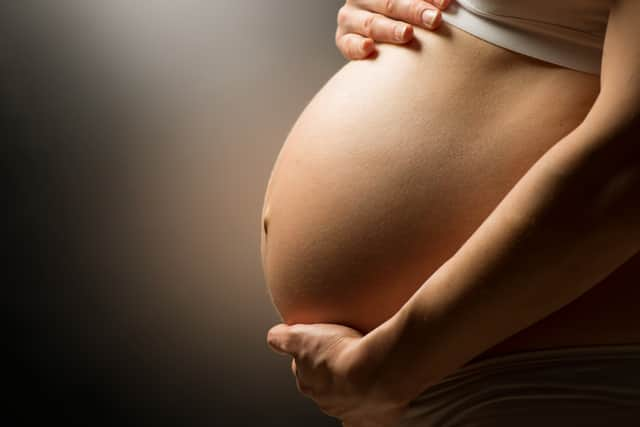Is it risky to get pregnant after miscarriage? New study contradicts WHO advice on waiting 6 months
and live on Freeview channel 276
Getting pregnant within a few months of an abortion or a miscarriage does not appear to be extra risky for the mum and baby, researchers have said.
But what has new research found? Here’s what you need to know.
Advertisement
Hide AdAdvertisement
Hide AdWhat has new research said about getting pregnant after miscarriage?
A study in PLoS Medicine, which looked at recent real-life data and analysed 72,000 conceptions, suggests couples might safely try sooner for a baby than the current advice. The research from Norway spanned eight years from 2008 to 2016 and found no major differences in outcomes when a new pregnancy happened sooner than a six-month delay.
This is different from other studies which have informed the World Health Organization (WHO) recommendations on pregnancy spacing. The WHO recommends at least a six-month gap in order to give the woman time to recover, but has said more research into this issue is already under way and would inform any future updates to the advice.
The authors of the latest Norwegian analysis say the advice needs reviewing so that couples can make an informed decision about when to try for a baby. They said asking parents to wait six months after a miscarriage or an abortion may be too long for some, particularly when the emerging medical evidence does not appear to support it, and have recommend more studies be conducted into this.


What does the NHS say?
The NHS website said a miscarriage can be “an emotionally and physically draining experience” and you may have “feelings of guilt, shock and anger”.
Advertisement
Hide AdAdvertisement
Hide AdIt says you can try for another baby as soon as your symptoms have settled and you’re emotionally and physically ready. “It’s important to remember that most miscarriages are a one-off and are followed by a healthy pregnancy,” the NHS explained.
Advice and support are available at this time from hospital counselling services and charity groups. You may also find it beneficial to have a memorial for the baby you lost.
Some people come to terms with their grief after a few weeks of having a miscarriage and start planning for their next pregnancy, but for others, the thought of planning another pregnancy is too traumatic, at least in the short term, explained the NHS. If you’re in a relationship, it can help to make sure you’re both open about how you are feeling.
The NHS said you should avoid having sex until all of your miscarriage symptoms have gone. Your periods should return within four to eight weeks of your miscarriage, although it may take several months to settle into a regular cycle.
Advertisement
Hide AdAdvertisement
Hide AdIf you want to get pregnant again, you may want to discuss it with your GP or hospital care team to make sure you are feeling physically and emotionally well before trying for another pregnancy.
The NHS website has further information about this and the Miscarriage Association also has information on thinking about another pregnancy that you may find helpful. The baby loss support charity Tommy’s also offers advice and support.
Comment Guidelines
National World encourages reader discussion on our stories. User feedback, insights and back-and-forth exchanges add a rich layer of context to reporting. Please review our Community Guidelines before commenting.
